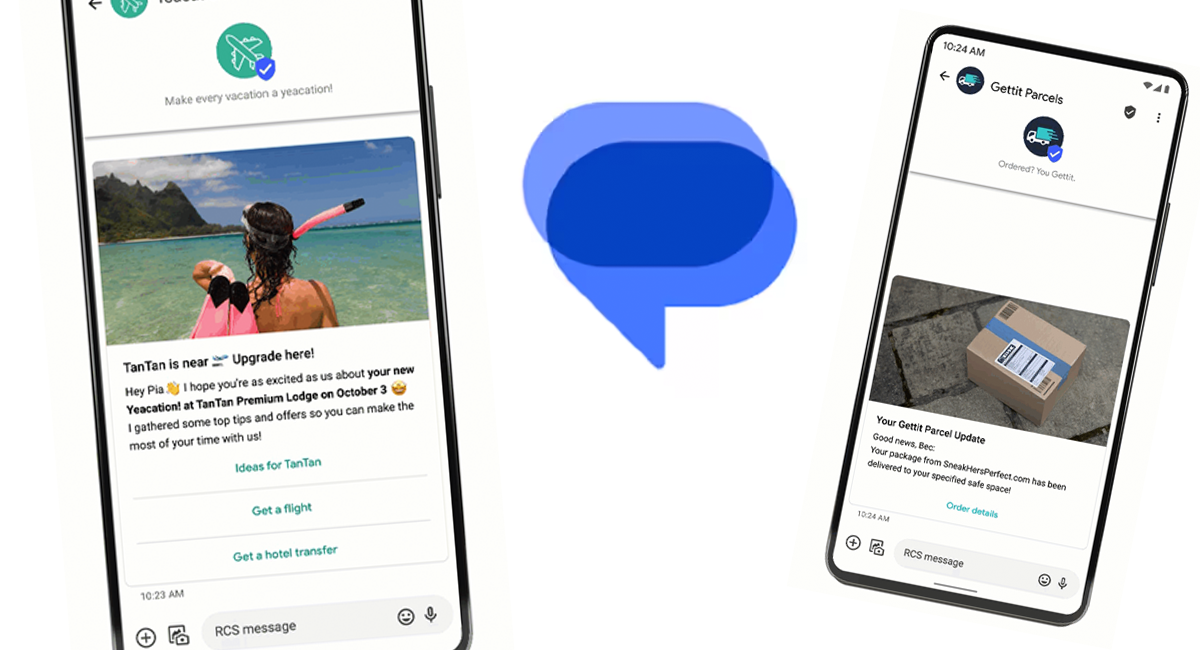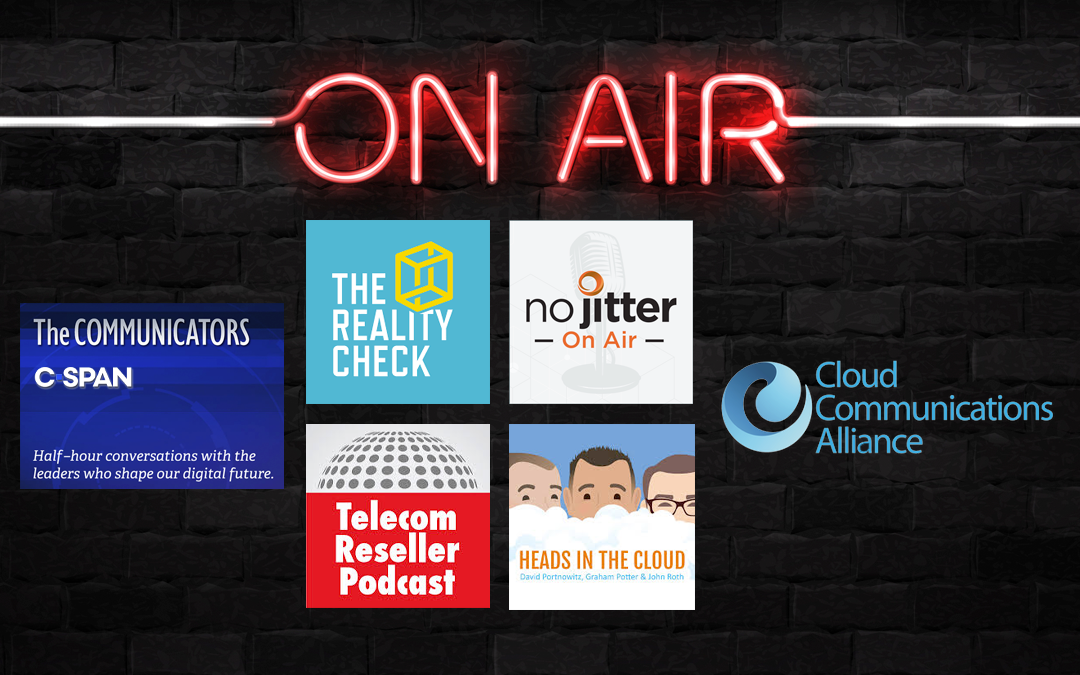Hands-on Tips for Building Your Messaging Lists
Once upon a time, you could call, email, and text anybody you wanted with impunity. As technologists and marketers got better at sending trillions of messages at once though (okay, a slight exaggeration!) consumers got fed up and restrictions were put in place. The strictest one may be on texting: a business is not allowed to send a text without explicit permission—also known as opting in.
Texting is the easiest way to reach people, with virtually everyone opening their messages within a couple minutes of receipt, but how do you get someone to say “Yes please! I want your marketing!” though? Fortunately, there are ways. Let’s start with the rules, though—because they don’t just make carriers happy, they put your customers at ease and make them more likely to play along.
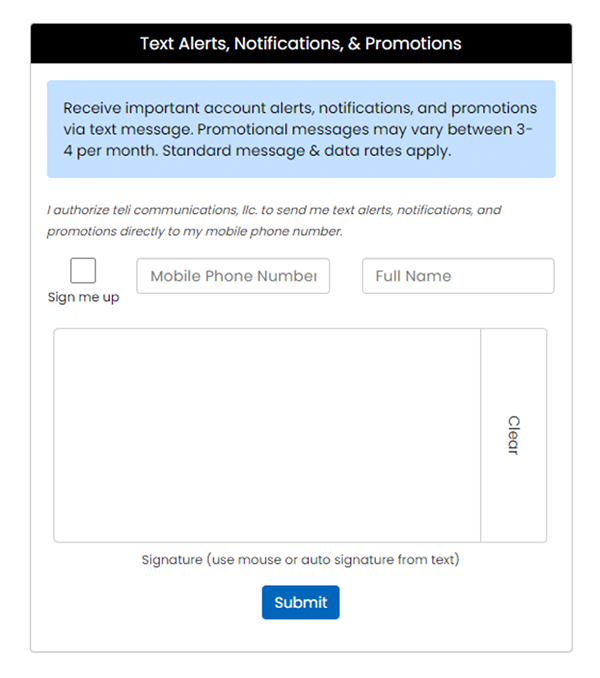 #1: Implied consent is not enough
#1: Implied consent is not enough
In the good ole’ days of just phones and email, any evidence of a “relationship” was good enough to keep contacting them. If someone bought from you, it was permission to spam ad nauseum! Under current texting rules, that’s not sufficient—and that’s Telephone Consumer Protection Act (TCPA) law: you need clear evidence a subscriber said Yes, you can text me. (This isn’t to say you can’t reply to a text they send you directly, but that’s different from mass, automated texts.) If you don’t follow the law and someone complains, you can end up in expensive litigation.
#2: Do a double opt-in
You know how they say that if one is good, two is better? While that doesn’t always hold true (maybe skip the second burger), it’s a great idea for verifying opt-ins. A double opt-in is when someone asks to join your campaign and then you ask them to reconfirm in your first message. It’s the best way to ensure you’re complying with TCPA rules but also to establish respectful relationships with your subscribers.
Tip #3: Set expectations
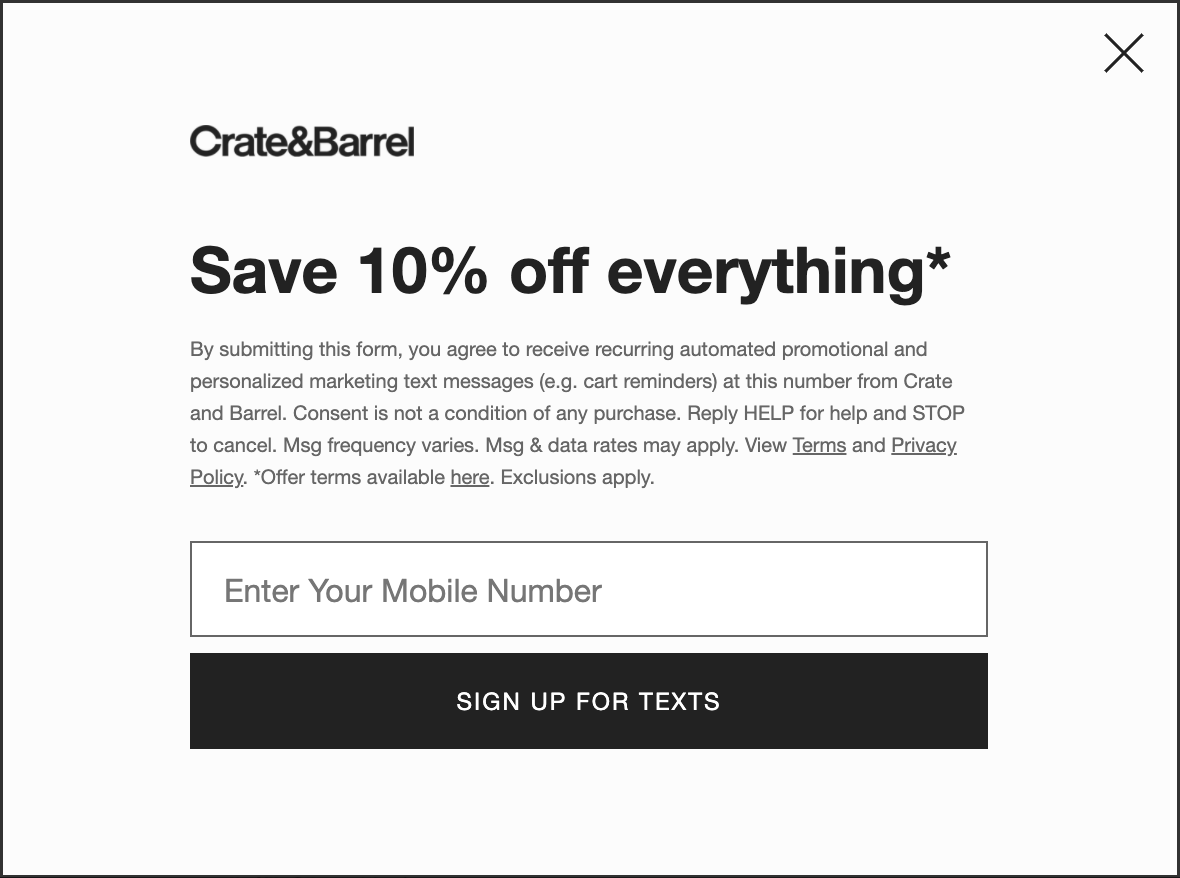 In your confirmation text, let subscribers know what kinds of messages to expect from you and how often, as well as that data rates may apply. Although the last is typically a non-issue, it lets customers know up front you’re being honest with them.
In your confirmation text, let subscribers know what kinds of messages to expect from you and how often, as well as that data rates may apply. Although the last is typically a non-issue, it lets customers know up front you’re being honest with them.
- Content – You may have given them a good reason to join, but you need to provide a compelling reason for them to stay on your list. For many, this can be regular promotions, but it can also be company announcements, product and service updates, contests, surveys, etc. Tell subscribers what to expect.
- Frequency – Give opt-ins some idea of messaging frequency up front—and then stick to it. Most news can be shared on the website, in newsletters, and so on. Opt-ins are special and texting should be used sparingly lest you overwhelm.
Tip #4: Give them a reason why
Incentivize people to opt in with a discount, coupon, or other offer. We didn’t really have to tell you this one, though (did we?). People love their freebies!
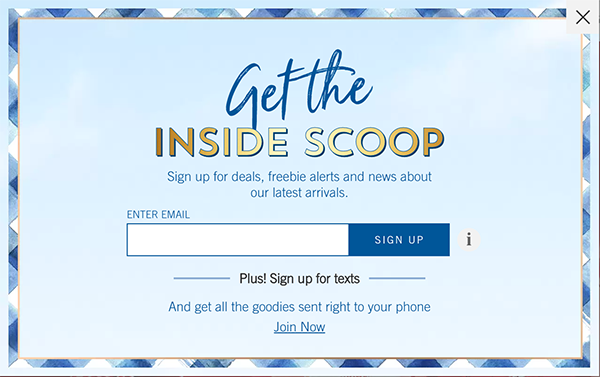 Tip #5: Include the option to opt in across all your marketing
Tip #5: Include the option to opt in across all your marketing
Post opt-in requests across your marketing: Email, chatbots, advertising, brochures, trade shows, events, packaging…everywhere. Did we mention everywhere? This includes prominent links on your website.
Tip #6: Don’t forget your current customers
Insert opt-in requests in your customer communications, as well, including email, newsletters, social media, and customer portal(s). You could literally include it in your header or email signature. These are the people you talk to most and have bought into your products and services—hopefully there’s already some love! If you have critical, timely product / service information you can offer via text, all the better. (“Power outages have been reported in your area code. Expected time of repair is 3pm.”)
Tip #7: Make it easy
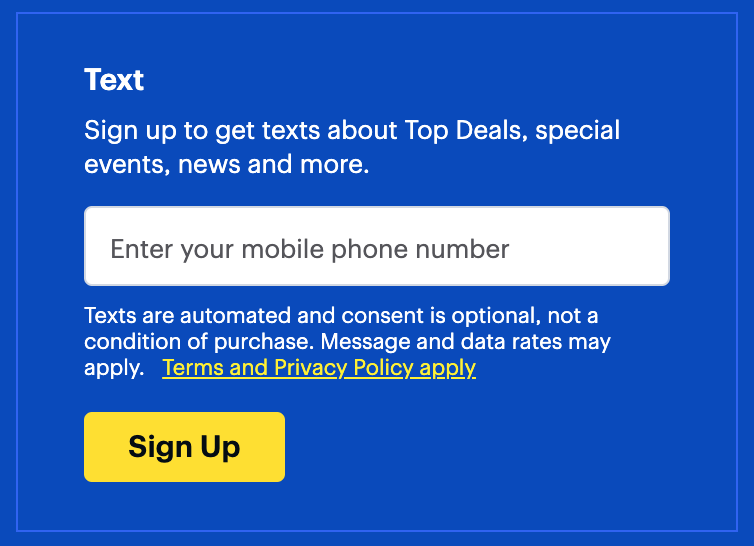 Give people multiple ways to opt in. Depending on the forum, you can use hyperlinks, QR codes, or ask them to text a short code (“Can we text you? Text Yes to 38761!”). A link to a form is typically sufficient online. QR codes are great for non-electronic literature, posters, print ads, etc. The last is especially good for audio formats, such radio or television, and outdoor venues like company cars and billboards (Tip 7.1: make the number easy to remember, such as 123456). Different folks like different strokes, so mix it up!
Give people multiple ways to opt in. Depending on the forum, you can use hyperlinks, QR codes, or ask them to text a short code (“Can we text you? Text Yes to 38761!”). A link to a form is typically sufficient online. QR codes are great for non-electronic literature, posters, print ads, etc. The last is especially good for audio formats, such radio or television, and outdoor venues like company cars and billboards (Tip 7.1: make the number easy to remember, such as 123456). Different folks like different strokes, so mix it up!
Opt-in signups can also be a checkbox on something else they’re submitting; it’s common to see a pre-checked box in the fine print before you click “Submit Order.” If you do that, however, we encourage you to use very clear language and make it visible. Nobody wants to be tricked.
Tip #8: Measure, measure, measure
Another opt-in best practice that should go without saying is to measure everything so you can focus on what works. See which sources provide the most opt-ins. A/B test your messaging to see which wording and which offer works best. Measuring and applying your results ensures the highest return without bombarding prospects and customers.
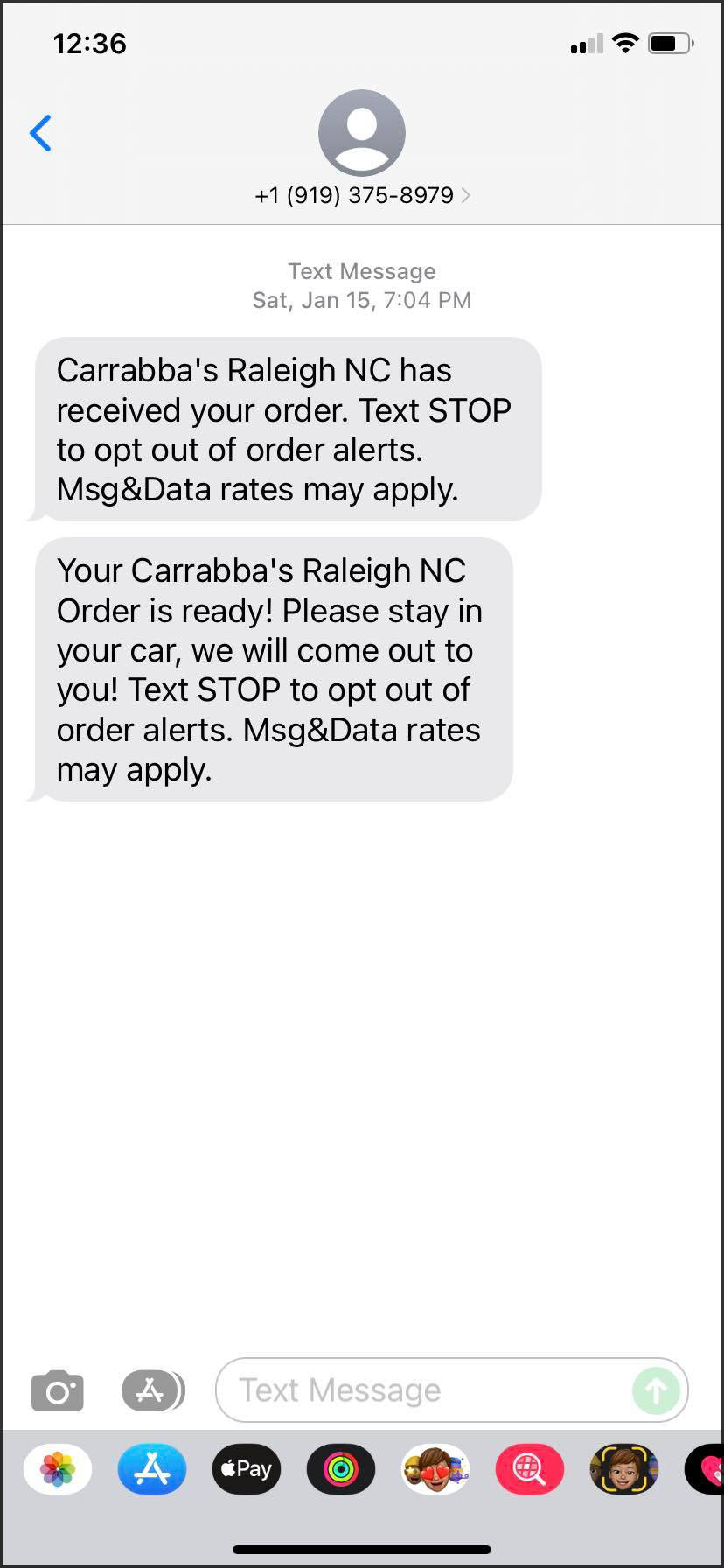 Tip #9: Give your opt-ins a way to opt out
Tip #9: Give your opt-ins a way to opt out
Always, always include a way to opt out, even in that first confirmation message! When the honeymoon’s over, it’s over. Sometimes they’re short. Sad as it is, it’s better to part amicably (and who knows—maybe the relationship can be rekindled someday).
Also? This is required by TCPA law, as well. Even if you have express written consent from subscribers, you’ve got to let them change their mind. While you can get away with offering opt-out language in the first few messages and then periodically, best practice is to include it Every. Single. Time. Better safe than sorry!
* * * * *
It might take a little work to build your opt-in list, especially if you follow all the rules. The end result, however, is a list of people who have not only actively asked to be there, but are also excited to receive your texts.
See also: eBook Introduction | Short Code | Long Code | Toll-Free Messaging | Opt-In Lists | Messaging Rules | Delivery Receipts (DLRs) | Messaging APIs











